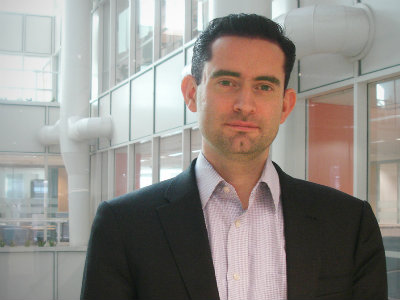
The General Social Care Council has taken service user involvement seriously ever since it began regulating social work in 2001. Right from the start, we recognised that we would only have legitimacy with the sector if the views of service users were at the heart of what we did. But more than this, we realised that the standards of the profession, if they are to be meaningful, need to be informed by the experiences of people who use services. Those people should not be viewed as passive recipients of services, but active participants in all things which affected them, including how the social work profession was regulated.
There were a number of ways in which the GSCC sought to make this possible. The code of practice for social workers, for example, was significantly influenced by service users’ views. Service users were also heavily involved in the regulation and development of social work education and training. One of the requirements of the social work degree is that service users should be involved in the provision of teaching, as well as in the recruitment of students onto the degree course. Nearly 6,000 service users and their carers have been directly involved in the provision of the social work degree across England each year.
We also ensured service users were involved in the inspection of those institutions. We built up a team of 15 people, from a range of different backgrounds and with different experience of services, to take on this role. This gave us a unique perspective on how social work degree courses were being delivered and ensured, among other things, that the involvement of service users in the teaching of the degree was not tokenistic.
Looking to the future
The GSCC will close on 31 July and regulation of the social work profession will transfer to the Health Professions Council (HPC). To set out what we have learned about service user engagement before closure, we have produced a report, Involving people who use services and their carers in the work of the General Social Care Council 2001-2012, which will be published on Wednesday.
The report found collaborative working with other organisations in social care, including service user-led organisations such as Shaping Our Lives, was hugely important in pushing forward the involvement agenda and for sharing ideas, resources and new ways of thinking. For example, we faced the challenge of properly reimbursing service users for their contribution, as any payments for the work that they undertook could affect the welfare benefits that they were entitled to. We tackled this issue by working collaboratively with the Social Care Institute for Excellence, Commission for Social Care Inspection (later the Care Quality Commission) and Skills for Care, and successfully gained changes to the benefits rules to allow service users to be properly reimbursed.
We also learned that cultural change needs to take place within an organisation such as the GSCC in order to reap the benefits of involvement and that specific resources need to be set aside to make it happen. Staff members need to be made aware of the purpose and benefits of involving service users. Regulators also need to provide service users themselves with a clear idea of what getting involved means for them.
Overall we have found that involving service users in the work of a professional regulator is a hugely important but difficult thing to achieve. The HPC – which will take over regulation of the social work profession from the 1 August – recently agreed in principle to develop a standard for service user involvement in the teaching of the social work degree. We are confident the new regulator will carry on the GSCC’s work in this area.
Related articles
What service users want from social workers
Are service users really being listened to on the future of social care?


 Assistive technology and dementia: practice tips
Assistive technology and dementia: practice tips  A trauma-informed approach to social work: practice tips
A trauma-informed approach to social work: practice tips 




 Find out how to develop your emotional resilience with our free downloadable guide
Find out how to develop your emotional resilience with our free downloadable guide  Develop your social work career with Community Care’s Careers and Training Guide
Develop your social work career with Community Care’s Careers and Training Guide  ‘Dear Sajid Javid: please end the inappropriate detention of autistic people and those with learning disabilities’
‘Dear Sajid Javid: please end the inappropriate detention of autistic people and those with learning disabilities’ Ofsted calls for power to scrutinise children’s home groups
Ofsted calls for power to scrutinise children’s home groups Seven in eight commissioners paying below ‘minimum rate for home care’
Seven in eight commissioners paying below ‘minimum rate for home care’
 Facebook
Facebook X
X LinkedIn
LinkedIn Instagram
Instagram
Comments are closed.